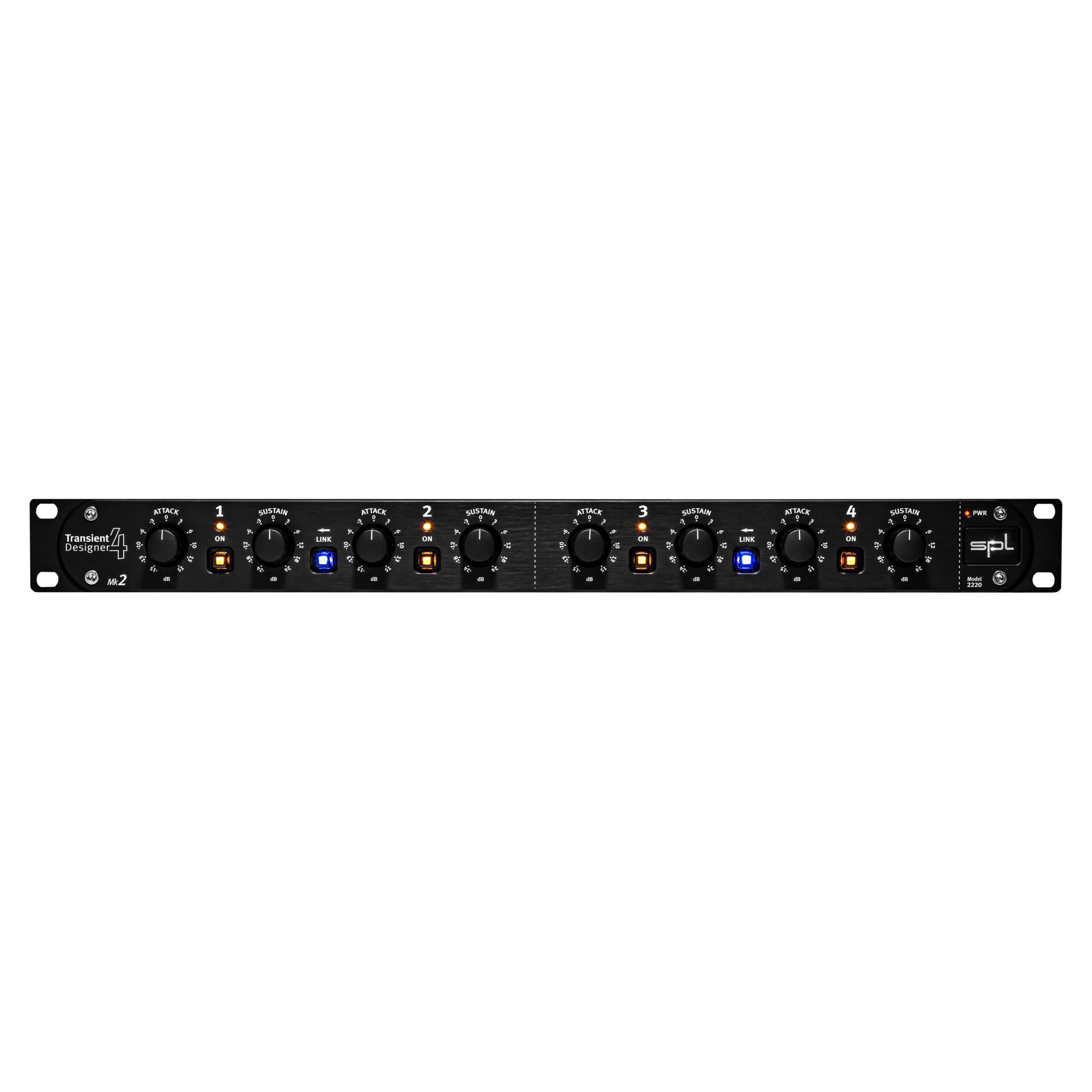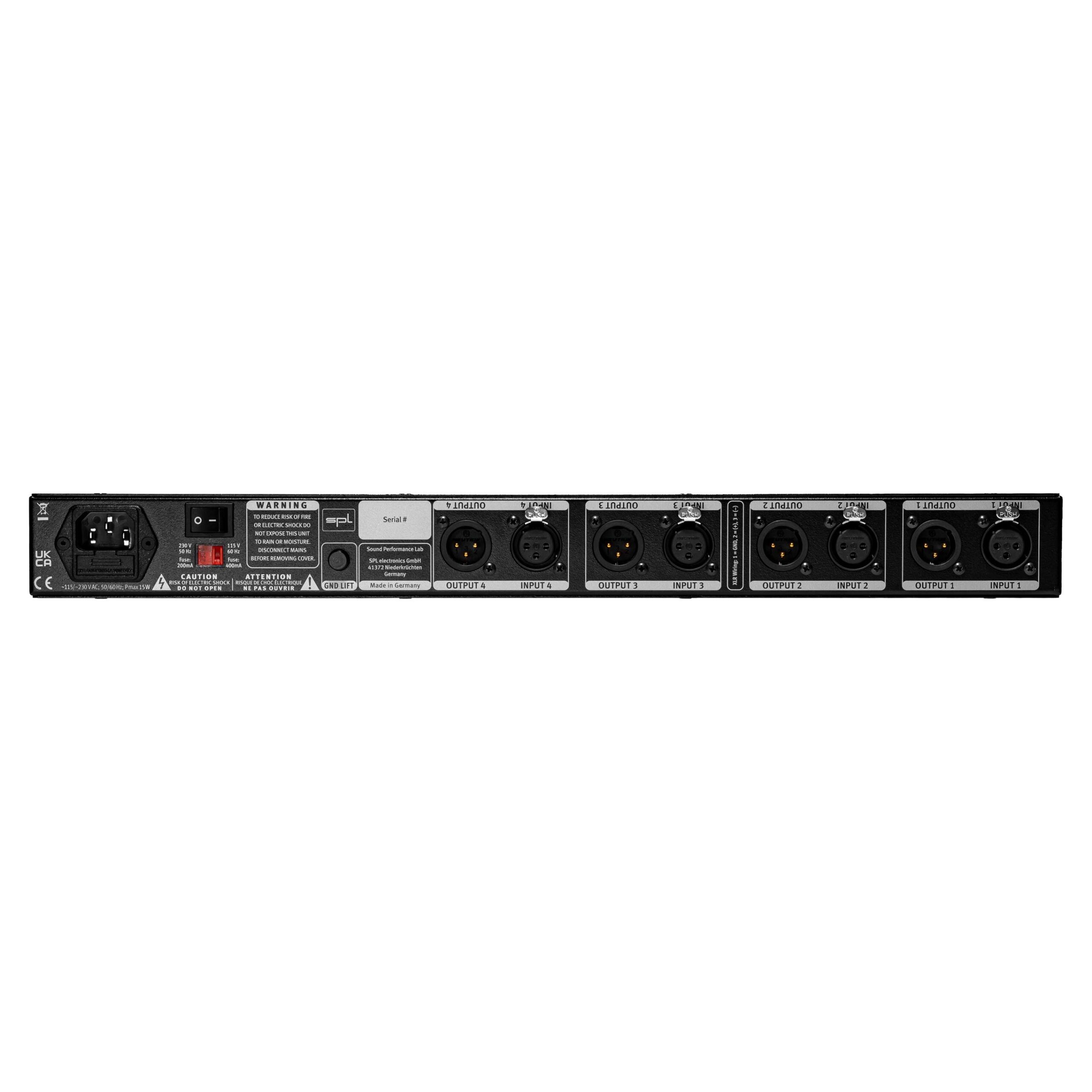Transient Designer 4 Mk2 The original – redesigned.
In 1998, the SPL Transient Designer created a new breed of dynamic processors. Level-independent processing of attack and sustain of audio signals has revolutionized music production in a significant way. The newest generation of the Transient Designer 4 features the same processing qualities as its predecessor, but comes in a new design and has an even better feel due to the solid aluminum knobs. The Transient Designer 4 Mk2 offers four Transient Designer channels in one 19″ device.
Transient Designing
SPL Transient Designer – the revolution in dynamics processing. With the Transient Designer it is possible to manipulate the envelopes of audio signals level-independently (no threshold!). Accelerate or slow down transients, lengthen or shorten sustain times – with just two controls: attack and sustain. All time constants are automated in a musical way and optimize themselves adaptively according to the characteristics of the input signal.
Attack
Attack can be used to increase or attenuate the transient phase of a signal by up to 15 dB. A positive attack value increases the amplitude of the transient response. Negative attack values lead to an attenuation.
Sustain
Sustain can be used to increase or attenuate the sustain phase of a signal by up to 24 dB. Positive sustain values extend the sustain. Negative Sustain values shorten the sustain.
On
The On switch activates the respective Transient Designer channel. This allows you to quickly switch between processed and unprocessed signal. To minimize switching noises, switching is performed directly after the balanced inputs and outputs. This relay hard bypass circuitry also provides immediate redirection of inputs to outputs in the event of a power fault on the primary or secondary side of the power supply, or if the device is powered off.
Signal LED
The Sig LED (Sig) indicates whether an audio signal is present at the input which has a level higher than -20 dB.
Link
Channels 1 & 2 as well as 3 & 4 can be linked for processing stereo signals. The respective left channel becomes the master.

